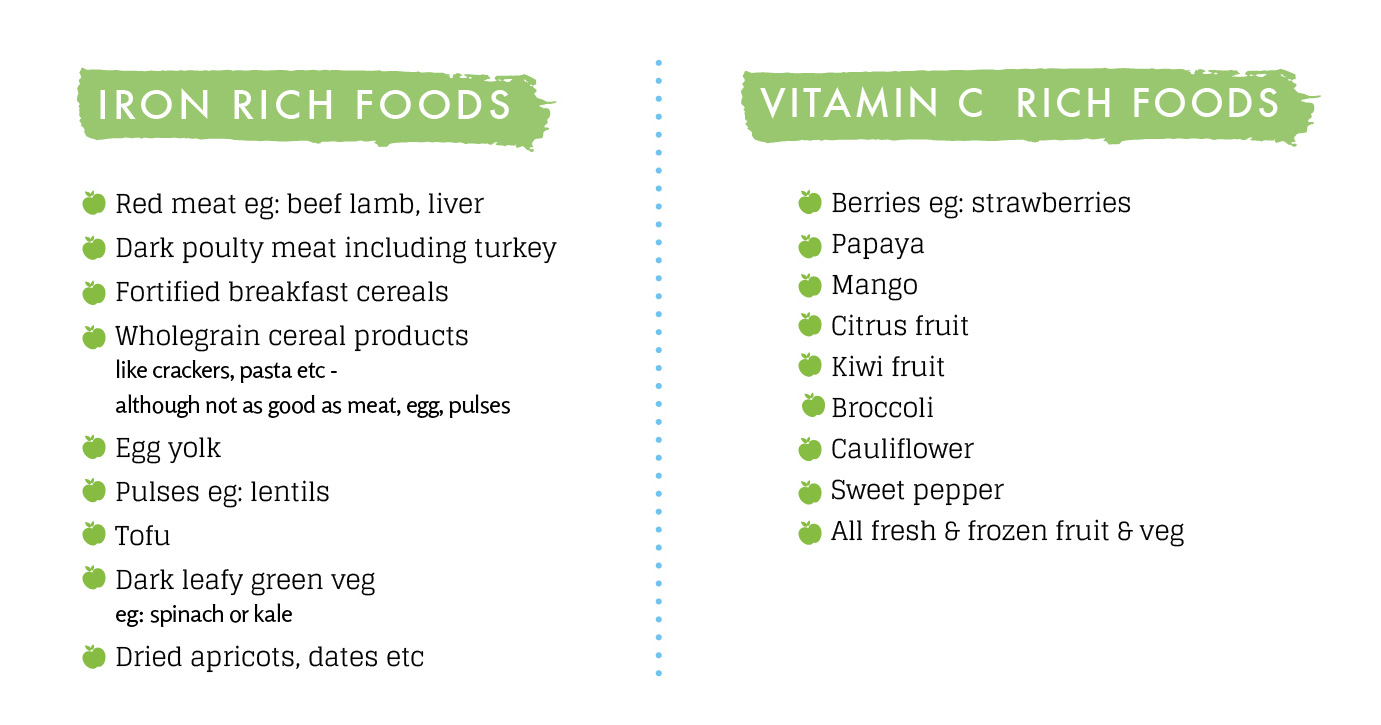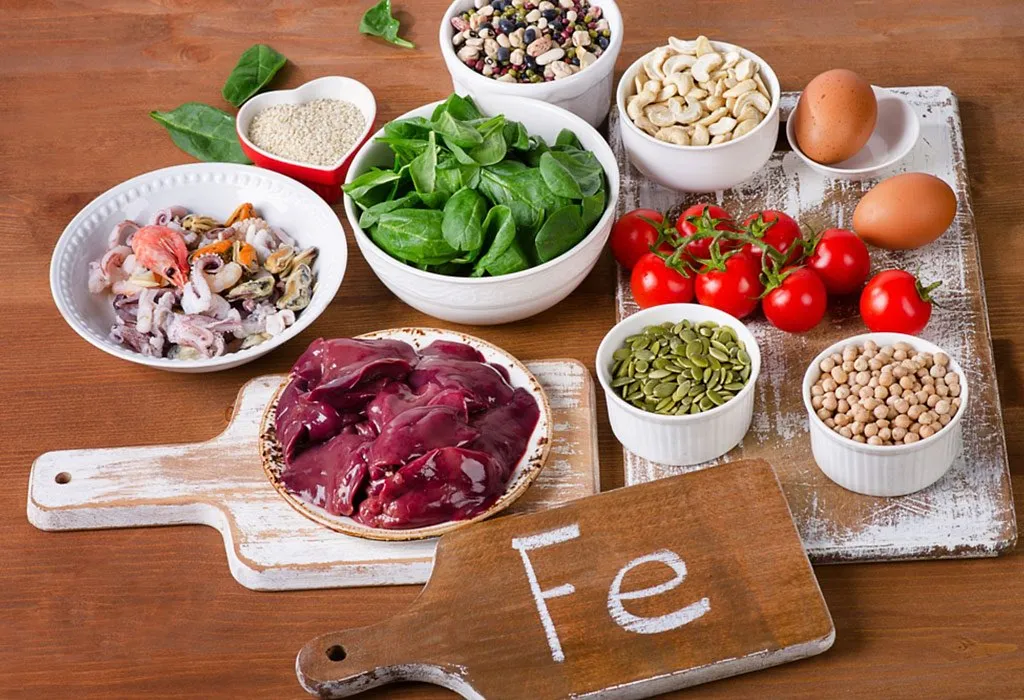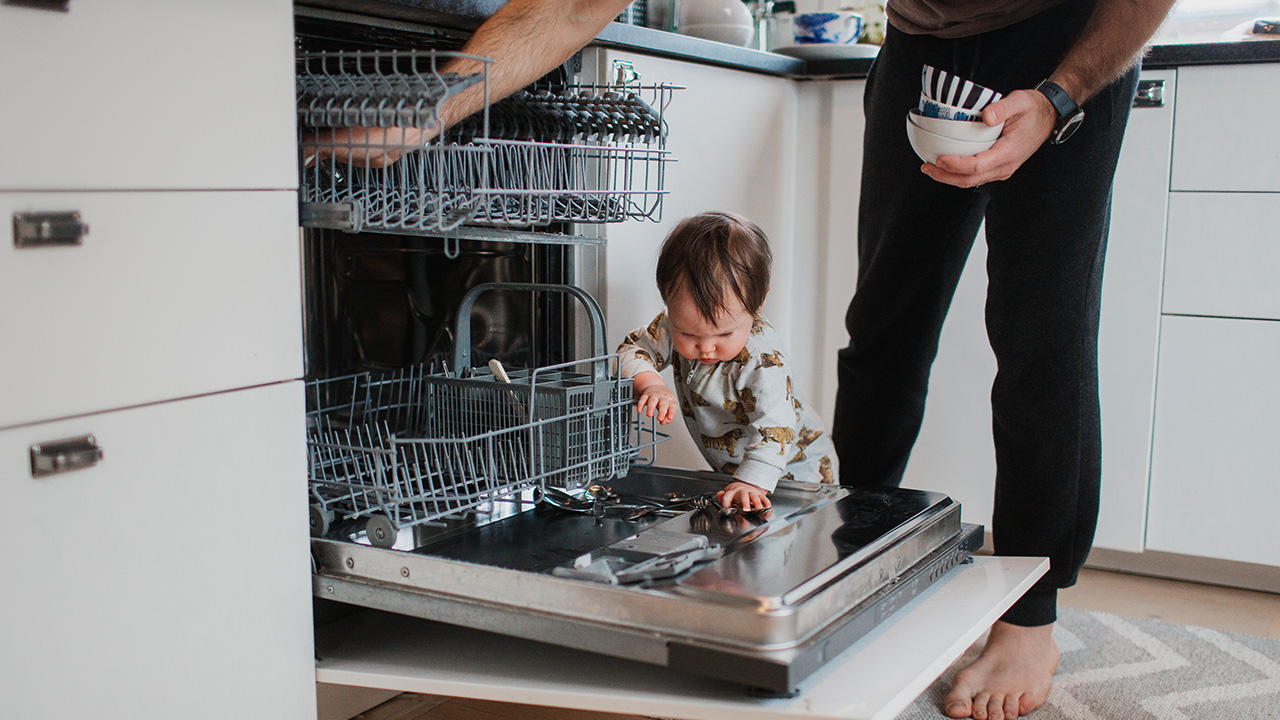Feeding Your Child Right: Iron-rich Foods for Babies
Introduction
Nutrition in infancy is critical not only for proper growth but also for development. A well-balanced diet offers an array of necessary nutrients for babies, one essential nutrient being iron. The progressing journey of parenthood requires you to be aware of the sources of iron that can suffice your baby's needs. This article talks about the importance of iron in a baby's diet, the best iron-rich foods for babies, the daily recommended iron intake, and how to incorporate these iron-rich foods into your child's diet. Stick around to learn more about preventing iron deficiency in children.
Understanding Iron: The Essential Nutrient for Infants
Iron plays a pivotal role in the healthy growth of infants and understanding its significance is paramount. Here's why:
- *Crucial Role in Body Function*: Iron is integral to the formation of hemoglobin - a component of the red blood cells. Hemoglobin is responsible for carrying oxygen from the lungs to different parts of the body, influencing the overall functioning of the body.

- *Affects Brain Development*: Iron plays a noteworthy role in the creation of neurotransmitters. These are chemicals crucial for brain cells to communicate effectively with each other, helping in the cognitive development of infants.
- *Supports Physical Growth*: Rapid growth characterizes infancy. During this growth phase, the baby's iron needs increase significantly. Iron participates in various body processes, contributing to optimal physical development.
From supporting body functions to influencing brain development, iron proves itself as an essential nutrient for infants.
Why Do Babies Need Iron in Their Diet?
Iron is a significant nutrient that plays a critical role in the early years of your child's life. It is especially vital during the first 6 to 24 months when the rapid growth spurts deplete the iron stores received at birth and the iron intake from breastfeeding is no longer sufficient. Let's understand why babies need an iron-rich diet:

- Hemoglobin Formation: Iron is essential for the production of hemoglobin, a protein in red blood cells responsible for carrying oxygen throughout the body.
- Brain Development: Iron influences the development of the brain and contributes to neurotransmitter production, the chemicals responsible for brain cell communication.
- Rapid Growth: The high growth rate of infants demands a surge in iron requirement. The lack of it can lead to stunted growth.
- Preventing Iron Deficiency: Insufficient iron intake can lead to iron deficiency anemia in infants, resulting in developmental delays and behavioral issues. Therefore, an iron-rich diet is crucial in preventing this.
This makes it imperative to introduce iron-rich foods into your baby's diet starting from six months onwards, ensuring they get the right nutrients to foster healthy development.
What are the Best Iron-Rich Foods for Babies?
Entering the world of purees, mashes and finger foods can be an exciting adventure for both parents and babies. However, it's crucial to ensure your young one's diet includes appropriate amounts of essential nutrients, particularly iron. Here's a selection of top iron-rich foods that can make your baby’s meals more nutritional.
The Case for Iron-Fortified Cereal
- Why It's Recommended: Iron-fortified cereals often serve as a baby's first exposure to solid food and for a good reason. They are rich in iron and easy for tiny tummies to digest. Being plant-based, the iron in these cereals is harder for the body to absorb, which is why it's beneficial they are fortified to meet the baby’s iron requirements.
- Serving Ideas: You can serve these cereals with breast milk, formula, or water, turning them into a liquid paste that's easy for your baby to swallow.
Incorporating Poultry and Red Meat
- Quality Iron Source: Poultry, such as chicken and turkey, along with red meats like beef and lamb, are excellent sources of 'heme iron' – a type of iron that the body absorbs more effectively.
- Additional Nutrients: Besides iron, these foods are also packed with protein and other essential nutrients.
- Preparation: They can be given to babies in the form of purees or as finely chopped, well-cooked pieces to ensure easy consumption and prevent choking hazards.
Harnessing the Iron in Green Leafy Vegetables
- Plant-based Iron: Green leafy vegetables such as spinach, broccoli, and kale are loaded with iron. But since it's plant-based, also known as 'non-heme iron', the absorption of iron from these sources could be less efficient.
- Pairing for Better Absorption: To boost absorption, you can pair these iron-rich veggies with vitamin C-rich foods such as oranges, tomatoes, or strawberries.
- Texture: Make sure the vegetables are cooked well and appropriately textured (pureed, mashed or chopped fine), ensuring your baby finds it easy to eat.
In conclusion, while breast milk or formula takes care of your baby's nutrition in their first few months, it's important to gradually introduce iron-rich foods into their diet starting around six months. Whether you choose iron-fortified cereal, poultry, red meat or green leafy vegetables, ensure its texture and consistency are suitable for your little one.
How to Incorporate Iron-Rich Foods into a Baby's Diet?
Embedding foods rich in iron into your infant's diet can seem like a daunting task, but with a progressive approach, the transition can be smooth and easy. Here's the ideal way to go about it:
Start Small, Think Big
It's crucial to introduce iron-rich foods gradually. Make a start with a couple of spoonfuls of iron-fortified cereals, which is often the first solid food introduced to babies. Monitor your baby's digestion and acceptance of this new inclusion, and then move onto other iron-rich foods.
Variety Is Key
- Iron-Rich Cereals: Iron-fortified cereals offer a substantial amount of iron in a form easily acceptable by a baby's digestive system.
- Meat: Offer a variety of meats including chicken, turkey, beef, and lamb in pureed or well-cooked, finely chopped forms.
- Leafy Greens: Green leafy vegetables like spinach and broccoli although not the primary source of iron for babies, can still contribute to their iron intake.
Texture Matters
Ensure the foods you serve are well-cooked and match your baby's texture preferences. As the baby grows and becomes familiar with solids, you can transition from pureed and well-mashed foods to finely chopped dishes for a bit of textural variety.
Pairing for Better Absorption
When offering plant-based iron sources, combine them with foods rich in vitamin C like oranges and strawberries. This pairing improves the bioavailability of iron, ensuring your baby receives the maximum benefits out of these healthy meals.
Making Meals Appealing
Try different mixes and combinations of iron-rich foods to sustain your baby's interest and acceptance. You can explore different flavour profiles by integrating iron-rich ingredients into baby-friendly recipes to keep meal times fresh and exciting.
Keep Track
Keep an eye out for symptoms of iron deficiency while introducing new foods. If you notice signs such as fatigue, decreased appetite, and irritability, don't hesitate to check in with your baby's healthcare provider.
To summarise, incorporating iron-rich foods into your baby's diet is a phased process. Begin with their preferred textures, gradually introduce variety, and pair foods for better absorption, keeping meal times exciting and highly nutritious.
Consequences of Iron Deficiency in Babies: What to Look For?
Iron deficiency in babies can lead to severe consequences, including both physical and cognitive developmental delays. Iron deficiency anemia, a common outcome of low iron intake, can manifest through a variety of symptoms. If you notice any of the following signs, it's essential to seek professional health advice immediately:
- Progressive Fatigue: Your baby may seem more tired or lethargic compared to normal. They might show less interest in their usual activities or play less energetically.
- Irritability: A significant change in your baby's mood, especially marked by increased irritability, can be a sign of iron deficiency.
- Pale Skin: If your baby's skin appears noticeably paler, especially on the face, inner lips, lower eyelids, or nails, this could signal low hemoglobin levels associated with iron deficiency.
- Decreased Appetite: A sudden or gradual decrease in your baby's feeding interest might indicate an iron deficiency issue.
Remember, these symptoms could signify a wide range of health issues, and only a qualified health professional can accurately diagnose the condition. Thus, if you observe any of the above signs, promptly consult your baby's healthcare provider. The early detection of iron deficiency greatly improves the success of treatment and prevents potential long-term impacts on your baby's health and development.
Conclusion
Introducing iron-rich foods into your baby's diet is important for their growth and development. With the right foods, you can ensure your child is getting enough of this crucial nutrient. However, if you suspect your child isn't getting enough iron, seek advice from a medical professional.
Related FAQs about what are iron rich foods for babies
Can Babies be Given Iron Supplements?
Yes, iron supplements can be given to babies, primarily if they're found to be iron-deficient or premature. However, only give supplements under the guidance of a healthcare professional, as excess iron can be harmful.
How Much Iron Does a Baby Need Daily?
The recommended dietary allowance for iron varies with age. For babies 6-12 months old, it's approximately 11mg per day. For older toddlers aged 1-3 years, the requirement is about 7mg per day.
What Role Does Vitamin C Play in Iron Absorption?
Vitamin C, also known as ascorbic acid, enhances the body's ability to absorb non-heme iron (found in plant-based foods) effectively. Hence, consuming iron-rich veggies with vitamin C-rich foods can boost iron uptake.


